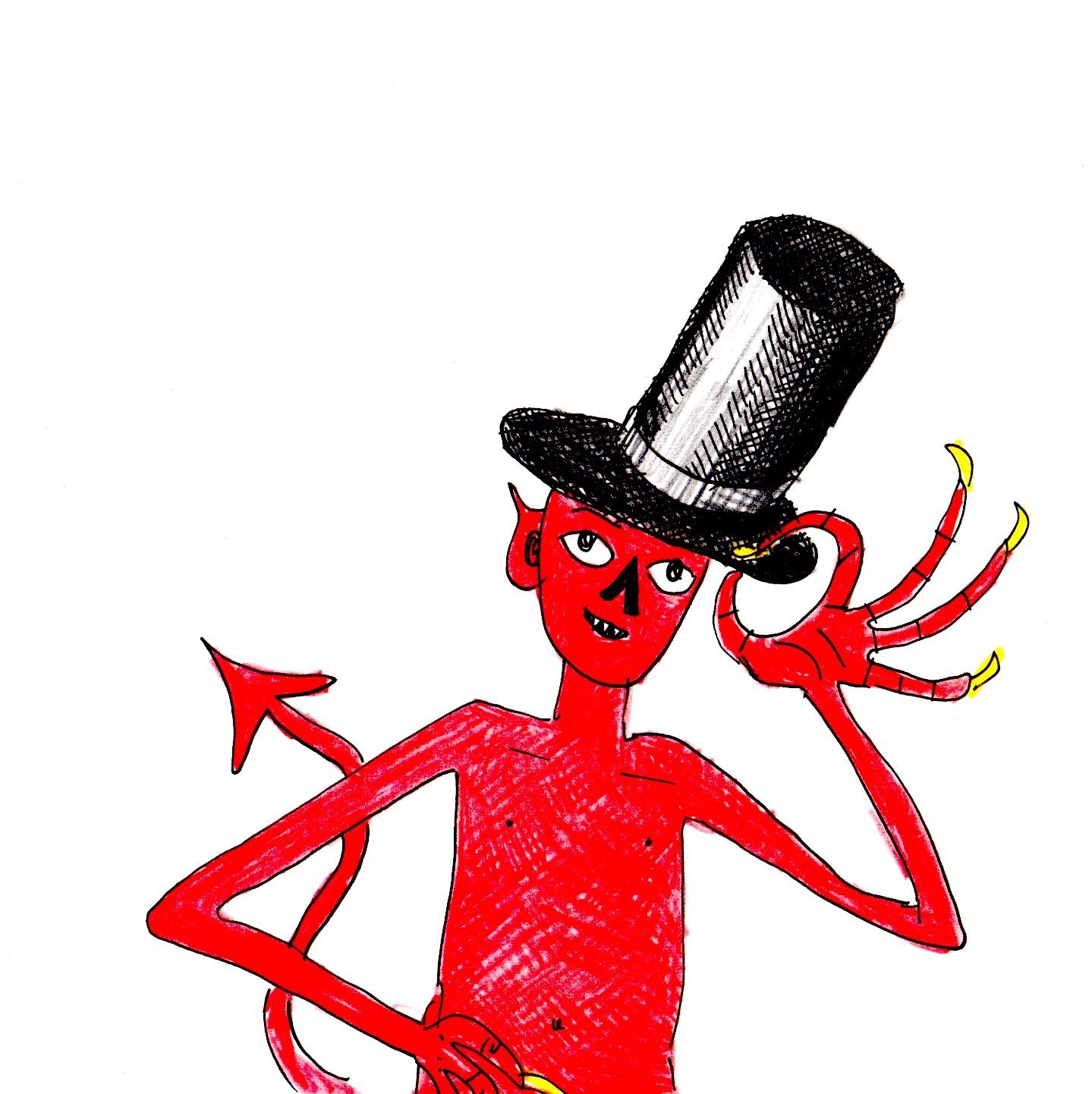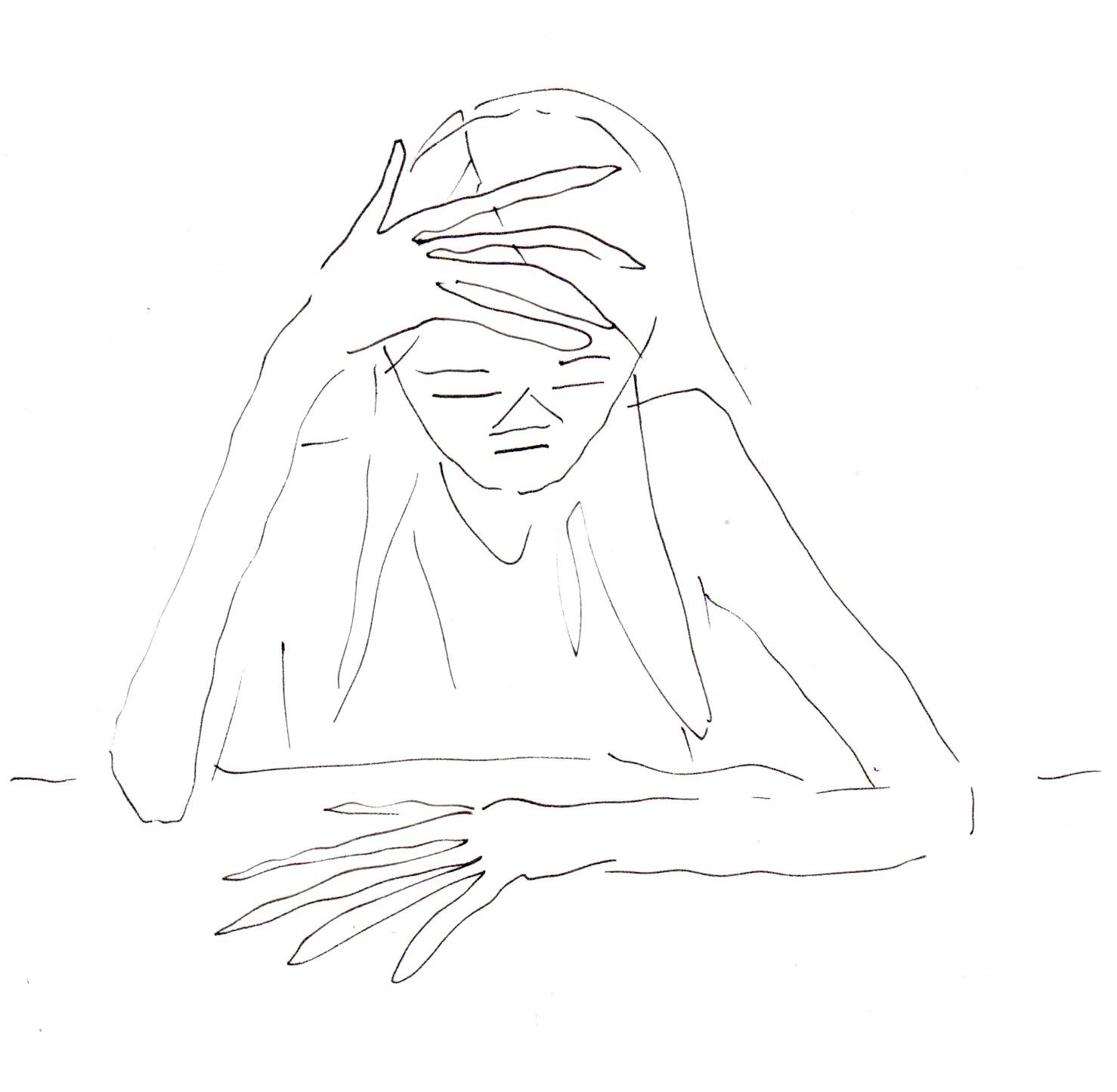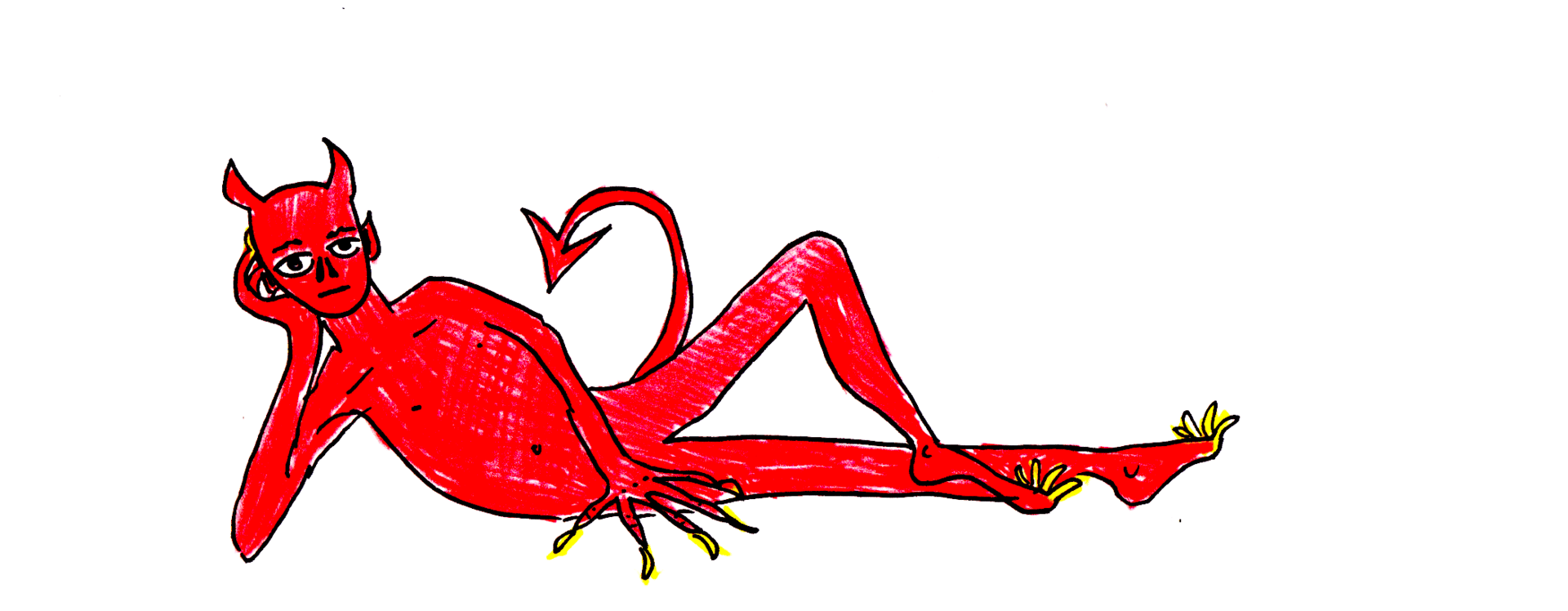
To commemorate our 7th anniversary and Recovery Month, we’re offering a 20% discount on all annual subscriptions throughout September.
If our newsletter has helped you feel less wicked and alone, less shitty or afraid, then please consider financially supporting us. Subscribers gain access to the entire archive, the Sunday essay, the complete recommendations roundup, and the comprehensive rundown of my weekly recovery program.
If you’d like to become a paid subscriber but can’t afford it at this time, email me: [email protected] and I’ll hook you up.
Clear eyes, full hearts, etc. —AJD
Today, Megan Koester returns to TSB to share her story of family trauma and EMDR. She’s gone all soft on us. (Not really.)
“Whenever I stopped taking SSRIs, which was frequently, it wasn’t because I felt good. It was because I didn’t feel anything. I now know that the feeling of nothing is preferable to the feeling of incapacitating depression and anxiety. But, at the time, with zero hours of therapy under my belt, I expected medication to be a quick and complete fix. If it didn’t render existence immediately, perfectly, tolerable, it wasn’t worth a good goddamn.”
Read her essay, then play the Smog song at the end, then read her essay again. — AJD
Cold Blooded Old Times
by Megan Koester

My mother’s grandfather, a car salesman from the old country, died of cirrhosis before I was born. My father’s father presumably died of the same cause, as he was so much of a drunk he named his dog Michelob, but verification of this assumption would involve me asking my father. I’d prefer to remain estranged.
I didn’t think alcoholism could happen to me because it didn’t happen to my parents, who each drank one frozen margarita once per fiscal quarter and always in the presence of others. They were the sort of people who would only buy beer if they were throwing a party — once the party was over, the inevitable overage would languish, unrefrigerated, in the garage for months. Their parties were infrequent. They had few friends. They somehow raised a daughter who once found an open bottle of wine in a public restroom and drank it behind the wheel of her car. The other daughter they raised died.
*****
I was thirteen when my sister left us without warning. One day, she was a normal three year old, watching the same goddamned Disney movie for the eight hundredth time in a row; the next, she was brain dead, having contracted meningitis from licking a grocery cart or something. In response, I started acting out and, to my parents, it was a medical emergency.
Because, in my family, feelings were problems, a belief system I still find difficult to shake. Whenever anyone shares negative emotions with me, I immediately start trying to brainstorm new and innovative ways for them to turn their frown upside down (never mind the fact I myself have been miserable for decades). If I am unable to use logic to successfully “solve” their “problem,” I am a bad confidant.
I only recently learned people like to talk in order to vent. I am 42 years old.
All of which to say, talk therapy was never presented as a potential salve to my mental anguish. We weren’t talkers. I was, instead, sent to a children’s psychiatrist, who my parents told to fix the problem as soon as medically possible. He immediately, erroneously, diagnosed me as bipolar and prescribed a litany of drugs, up to and including Lithium. Sobbing, I had my mother pick me up from school when I discovered, to my horror, the Lithium rendered me unable to piece together a single thought. A few years ago, my mother called with a hint of excitement in her voice as if she were about to deliver good news. “Remember Dr. Bouchard?” she asked. “They found him bludgeoned to death in the trunk of his own car!”
While the Lithium was wholly ineffective, I still tried to find the cure, jumping from pill to pill in the hopes the next would ease my troubled mind. Prozac was the first to hit. When it kicked in, a disorienting wave of “fine” washed over me as I stood in my grandparents’ kitchen and stared out their picture window at the isolated orchard I’d been living in for the past decade. I found myself returning to its comforting complacency again and again.
Because Prozac always worked until it didn’t. The thought that this could be the case because I never focused on the root of the actual problem, that being a childhood riddled with trauma up to and including the unexpected death of my sister, never occurred to me.
Whenever I stopped taking SSRIs, which was frequently, it wasn’t because I felt good. It was because I didn’t feel anything. I now know that the feeling of nothing is preferable to the feeling of incapacitating depression and anxiety. But, at the time, with zero hours of therapy under my belt, I expected medication to be a quick and complete fix. If it didn’t render existence immediately, perfectly, tolerable, it wasn’t worth a good goddamn.
In my late teens and early twenties I tried the geographical cure, jumping from place to place and man to man; at the end of every move, however, I found myself even more adrift. After a disastrous first marriage and physically abusive relationship in my mid twenties, I started drinking heavily and dangerously, blacking out on a nightly basis. But it quieted my mind even better than moving or medication, so I dedicated the next decade and a half of my life to it. That being said, binge drinking poison every night had deleterious effects on my body, putting me in a constant pain that could only be salved by more drink. I started attempting to quit in my early 30s, but the drying out never lasted. The physical cravings hurt too bad.
*****
I have absolutely no idea why more people don’t talk about how miserable early sobriety can be — how once you’ve stopped anesthetizing yourself from reality you’re immediately forced to become present or die trying. I didn’t know about the necessity of therapy in order to quiet the demons that led me to drink; I didn’t even know those demons were real, as I had convinced myself my “problem” was medical in origin. Feeling as though my brain was constantly trying to crawl out of my skull at recovery meetings made me, naturally, assume something was wrong with me.
Months were spent spiraling, compulsively doing YouTube yoga and writhing in bed. Complete desperation led me to download Bessel van der Kolk’s The Body Keeps the Score, the modern bible of trauma and a staple of every woke white woman’s bookshelf. While I found The Body Keeps the Score to mostly be a collection of the author’s petty grievances with the governing body of the DSM-4 (by which I mean to say, of no use to someone desperately trying to escape the prison of their own mind), it did introduce me to the concept of EMDR (Eye Movement Desensitization and Reprocessing).
I had never heard of EMDR because I didn’t know jack shit about therapy, my only experience with it being a few sessions with a well-meaning but wholly ineffectual ESL therapist Medi-Cal made me wait six months to visit who understood none of my references, bristled when I swore and told me Jesus loved me. My reaction to words like “trauma” and “triggered” could best be described as boomer-esque, with a dismissive roll of the eye and assessment of weak character on the part of those using them. Therapy, I thought, was a luxury afforded only to the rich, an echo chamber where they could have their persecution complexes validated by grifters who charged $250 an hour. I resented the popularization and weaponization of therapy speak, I resented the recovery memoir industrial complex. My smug judgement is what kept me from what happened to be the only solution to my problem. I can’t help but still see it all as cringe, but, as my therapist reminds me, something can be both cringe and true.
I now know an overwhelming desire for dissociation, my primary coping mechanism in childhood, is what led to my adult-onset alcoholism. I now also know neglect is a form of abuse. For the first 40 years of my life, however, I didn’t. It’s still easy not to view it as such, as it’s so passive; I have friends whose parents beat them, screamed at them, locked them in closets. Now, granted, I don’t remember all that much of my childhood, on account of the dissociation, but I’m fairly certain I only witnessed violence, and was never a party to it. I wasn’t molested. So why would I have so much PTSD it made me allergic to being present?
I didn’t, as it turns out, have PTSD. I had CPTSD (Complex Post Traumatic Stress Disorder), which typically arises from protracted, long-term childhood trauma. I almost never found myself triggered by actual memories or experiences, like the sounds of war or crippling flashbacks, which are characteristic of PTSD. My triggers, rather, were so subtle and sense-based that I wasn’t even cognizant of them being triggers.
I never made a connection between the intense isolation in which I spent my childhood and my subsequent mental agony. Yes, I knew the majority of my young life was spent alone in my bedroom reading, in a house in the middle of nowhere from which there was no escape (it would have taken hours on foot to reach the nearest town), but I never went hungry. Yes, when they were still together, I could hear my parents scream at one another through the other side of my locked bedroom door, and yes, the only thing I prayed for as a child was them to split up (well, that and for my melodramatic grandmother to die), but every Christmas I got whatever I circled in the JC Penney catalog. Yes, when I was 10 and my sister came into the picture, even less attention was expended on me, and yes, when I was made to babysit her I loathed the task and would shake her whenever she cried, but when she died I was alone again and that was a good thing, right?
These were lies I told myself in the service of survival. Dissociation minimized the memories, but the ones that remained had to be minimized as well in order for my still-developing brain to survive. The first four decades of my life were, therefore, an endless exercise in compartmentalizing. I second guessed every grievance; the more grim an anecdote, the more likely I was to make a joke of it. Minimizing the pain my past caused was a survival tactic, but it also strengthened the narrative that my depression and anxiety were unnatural. That nothing was wrong with my childhood and subsequent young-to-mid adulthood, but something was wrong with me.
When I was drunk, I didn’t think about being neglected as a child, or if I did, I focused on the resentment I had for my parents. The resentment made me a hero, not a victim. Since leaving a household in which I had no control, the pursuit of it ruled my life; I told myself I chose to be a drunk because it worked. Until — stop me if you’ve heard this one before — my life became unmanageable. Alcohol poisoning put me in the hospital twice, and I eventually found the rooms. I had a couple years under my belt before the pandemic, but the existential ennui of the time, coupled with its complete lack of accountability, made me pick up again. When the vaccine came and life began to resume a semblance of normalcy, I found myself unable to stop.
I found myself lying to my new husband, sneaking off to drink champagne in parking lots while claiming to be many years sober. The only time I felt comfortable was when I was drunk, but I couldn’t always be drunk; I wasn’t the protagonist of a Tennessee Williams play. With his help, I eventually, thank the fuck Christ, recognized the unsustainability of endless relapse.
When I finally dried out in earnest, though, my life became demonstrably worse. I was riddled with anxiety, on the constant verge of a panic attack. I couldn’t drive. I was afraid to sleep. I didn’t understand why I was a nervous fucking wreck, especially when the popular narrative amongst recovering alcoholics was that abstention after years of abuse immediately birthed a life affirming peace and clarity. Where was mine?
Descending once again into the safe agony of alcoholism, however, was no longer a viable option. I was approaching 40, and the idea of spending the rest of my life bouncing back and forth between sober and shitfaced felt like a death sentence. The time had come to try something else.
*****
And so, two years ago, I started therapy. My therapist wears linen slacks and neutral flats and speaks in dulcet tones, yet laughs with the force of her whole throat. She understands my references, pushes back when I’m dismissive or minimizing and has never once brought up the existence of Jesus Christ, let alone if He loves me. She’s done EMDR herself, having also experienced childhood trauma, and has seen the changes in her own life. She is living proof of the miracle.
The point of EMDR, she told me, is to process traumatic memories that were never fully processed at the time of their occurrence — the sort of traumatic memories that would lead a woman to, say, drink herself into the hospital multiple times. Without this processing, the mind remains on high alert for triggers that remind it of said memories in order to protect itself. When triggers are found, and there’s no intoxication to buffer their intensity, you’re immediately thrust into fight or flight mode. This is all done subconsciously, which explained my intense anxiety in light of no obvious threat.
The bedrock of EMDR therapy is bilateral stimulation, accomplished via tapping or eye movement. It activates both sides of the brain and your parasympathetic nervous system, mirroring what happens during REM sleep, when your mind usually processes the events of the day. If this is done while focusing on the traumatic memory, the intensity of the memory is lessened and triggers become, well, less triggering.
The popular narrative is that EMDR knocks out trauma in a half a dozen sessions over the course of a month; this, my therapist says, is only applicable to individual instances of uncomplex trauma, not lifetimes full of them (as is the case with those who have CPTSD). I found it hard to accept the fact that my processing would be a process in and of itself. Used to the quick relief of medication, and the even quicker relief of alcohol, the fact that I wasn’t “fixed” immediately upon starting made me feel as though I wasn’t doing it right.
The same desperation that made me read The Body Keeps the Score cover to cover led me to Psychology Today’s website, where I found my EMDR therapist. I picked her for the same reason I pick everything — she was the cheapest. Unlike the time I bought a bottle of wine at 99 Cent Only and the cork was moldy, this insistence on frugality did no harm. She changed my life.
She told me my alcoholism wasn’t genetic, it was a coping mechanism from constantly being thrust into fight or flight mode. (Substance abuse? That’s choosing flight, baby.) My sister’s death, my father’s temper, my isolationist upbringing, the physically abusive relationship of my mid-20s — none of these memories had ever been processed, just minimized. You can minimize something as much as you want, but that doesn’t negate it.
Through doing EMDR about my sister’s death, I discovered, much to my surprise, that I actually did care that she died. I had spent so much time trying to convince myself and others it didn’t affect me that I didn’t even think mourning was possible, let alone necessary. The day after my first EMDR session about my sister, though, I found myself sobbing to the point of hyperventilating. Almost 30 years later, I allowed myself the opportunity to mourn what could have been.
With my therapist’s help, I constructed a list of triggers — upon investigation, they all seemed to have the same root cause. Driving up the Grapevine en route to the dismal place of my birth? Made me feel trapped. Interpersonal conflict I couldn’t logic my way out of? Trapped. Sitting in the audience of my close friend’s one woman show? TRAPPED. Y’know, like how a kid would feel if they were alone in the middle of nowhere for years as chaos surrounded them.
Once I discovered these innocuous-seeming triggers, which weren’t consciously seen as threats but nevertheless made my mind and body squirm in anguish, everything began making sense. There was nothing inherently wrong with me, my brain was just naturally responding to the weight of subconscious reminders of my unprocessed childhood trauma. Dissociation, my therapist told me, was my “super power”; it enabled me to survive my childhood. With adulthood, however, comes agency. I just had to teach my subconscious mind there was nothing to fear. I owe my therapist my life. She settles for a few hundred dollars a month.
Read more of Megan’s writing on Exclusive Content. And even more here.
Previous Megan Koester on TSB:
MORE EMDR:
All Illustrations by Edith Zimmerman

